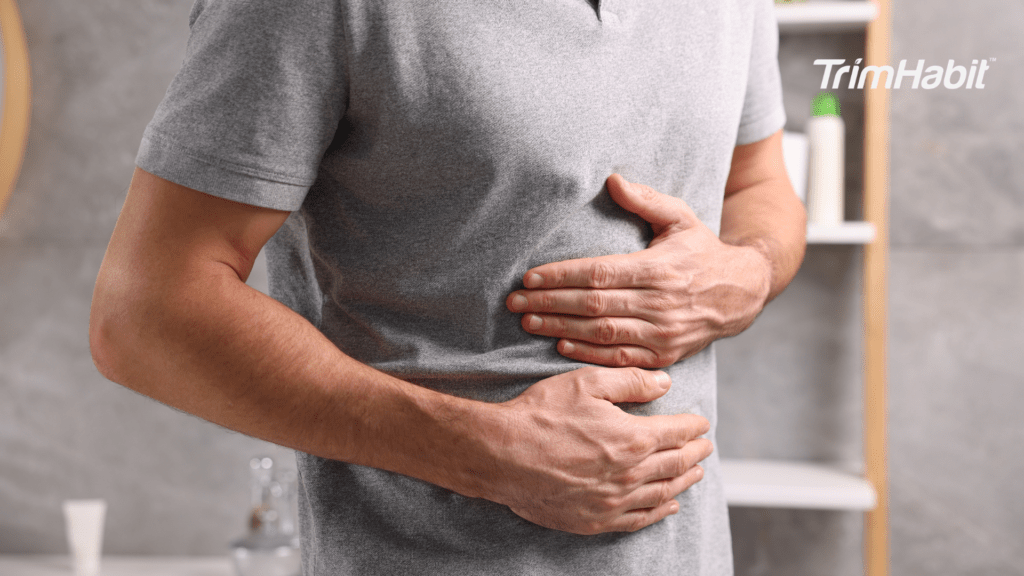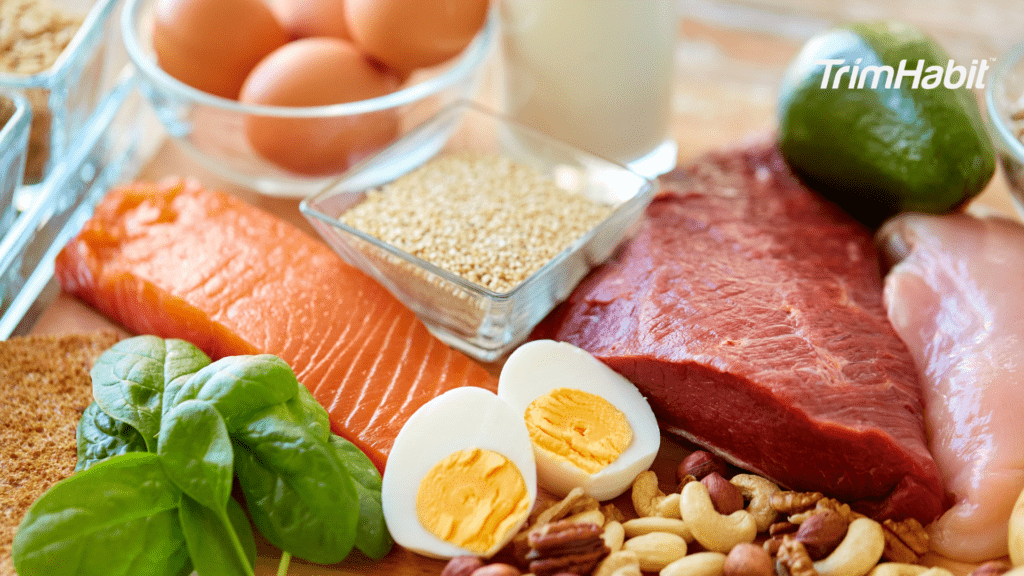Successfully fasting even with the 21 days fasting guide won’t always come easy. While immensely accepted by fitness fanatics, it should be noted that the required calorie reduction of even the most basic fasting is not well tolerated by some people, limiting the long-term use of such a strategy.
In recent years, fasting has become a staple form of diet and one of its most popular types involves “modified fasting”. Typically, modified fasting is where you can eat up to 500 calories on fasting days.
One of which is the 21-day fasting and it’s one that is biblically based and it’s modified much like a vegan eating plan but with more restrictions and the only beverage on the fast is water. If you’re new to fasting or interested in trying to fast, the information below will help define it and give you support to get started on your journey.
What Is Fasting?
Fasting essentially means abstaining from all food and water. In recent years and most notable today as “intermittent fasting”, the practice is primarily the same, only with some key differences.
Intermittent fasting is an eating strategy that alternates between fasting and eating on a regular basis. Unlike the usual fast, intermittent fasting is about all about when you eat. This is especially fitting if you are on a diet since fasting for a set number of hours per day or eating only one meal a couple of days per week can also assist your body to burn fat.
However, fasting has been done for thousands of years. It is even mentioned in the bible and is practiced for religious and spiritual reasons, even a part of human custom.
A biblical fast is just abstaining from food for religious reasons. Fasting was recommended and expected by Jesus (Matt. 6:17-18, Matt. 9:15).
During this time, many people forgo from food, television, and other types of amusement in order to spend it to draw nearer to God. This fasting period is rich because it is used to pray, read the Bible, and worship God. Simply said, if fasting isn’t accompanied by prayer and Bible reading, it’s just a diet.
What Is 21 Days Fasting Guide?
A 21-day period fasting is also known as the 21-day Daniel Fast. It is inspired by the biblical book of Daniel and is accompanied by 21 days of prayer. It’s based on the prophet Daniel’s spiritual and dietary experiences in the Bible, hence the diet’s name, Daniel Fast.
The Daniel fast, despite its name, is not your usual fast. The Daniel fast isn’t about eating or not for specific periods of time. In this scenario, the term “fast” refers to the limitations on what food you can consume rather than when you can eat it.
For several dieters, New Year’s Day commemorates the start of a 21-day Daniel Fast, a period of temporarily refraining from particular foods and beverages in order to achieve a New Year’s commitment to losing weight.
Different Types Of Fasting
It’s important to remember that fasting, in religious context, is not a kind of punishment for the sins you’ve committed but a spiritual discipline and expression to God. It’s about focusing your thoughts on him, taking a pause and making a decision to disengage from your reliance on the world and on yourself.
Here are some fasting examples:
- Complete Fast: You would only drink liquids (water, light juices, etc.) for the entire day or certain periods of the day for 21 days. This form of fast can be seen in the Book of Esther. Queen Esther summoned the entire people of Israel to fast in preparation for their rescue (Esther 4:16).
- Selective Fast: Since the Bible mentions refraining from certain foods or liquids, this is the most prevalent sort of fast. The Daniel fast found in Daniel 10 is an example of a selective fast (no meats, bread, and sweets for 21 days).
- Intermittent Fast: For the Hebrews, this was a popular sort of fast. You would fast at certain periods of the day during this fast. For example, refraining from eating from sunrise until sunset, or eating just in the morning or afternoon.
- Soul Fast: A soul fast often involves giving up comforts and indulgences other than food. Its objective is to protect the thoughts and feelings that enter your head and heart during this time of year. This includes, but is not limited to, social media, music, movies and television, smart phone usage, or screen time for a set length of time or for the full month.
Ways For An Effective Fasting And Prayer
During fasting, you tend to focus more on the foods you want to eat when you finally break your fast. Focusing just on the food aspect of fasting prevents you from feeling the richness that is accessible to you. Concentrating on the food element keeps you attending to your flesh rather than your spirit, which communicates with God’s spirit.
To truly embody the effectiveness of the 21 days fast, here’s what to do:
Condition Your Physical Strength
Fasting entails precautionary measures. Before you begin fasting, talk to your physician first, especially if you are taking prescription medication or have a chronic illness. Some people should never fast without the supervision of a specialist.
Physical preparation eases the transition to a new eating habit, seek God in prayer to allow you to devote your complete attention to your preparation. It’s essential to take care of your health better than risking it.
Identify Your Goal
Before you take further steps to fasting, you should evaluate your objectives and why you are choosing to fast. Is it because you merely want to lose weight? You may ask the Holy Spirit for guidance during your prayer and fasting to help you on your way to your goal together. You can also meditate and strengthen your faith in God in prayer; along with asking for a clear direction to your fasting goal.
Dedicate Yourself
When you fast, you shouldn’t expect to fully absorb the process or just anticipate the results. To obtain your intended outcome, you should take action and completely participate in the process. This cannot be done in a week or a few days of prayer fasting. You need to commit yourself beforehand and continuously choose to be dedicated in order to assist you in maintaining your fast especially when physical temptations and life’s stresses entice you to break it.
Follow a Schedule
Making a timeline clarifies all of your priorities for the coming days, allowing you to spend time more wisely. Set time for prayers, meditation and reflection throughout your fast.
You may also choose to read spiritual books if this can help you more with your journey. In your spare time, you can go for a walk and listen to God’s word to increase your spiritual experience.
End Fast Gradually
Return to regular meals slowly, with many modest snacks throughout the first few days. Reintroducing solid food into your stomach and digestive tract abruptly will almost certainly have unpleasant, if not hazardous, results. Each day, try to eat multiple smaller meals or snacks.
Foods To Consume On A 21-Day Fast
For the next 21 days, you will adhere to an eating plan that includes the following meals on the menu:
- Whole Grains
- Whole grains are commonly found in flour, for example, in whole form, which means that they have not been processed in any way. Oatmeal, barley, buckwheat, brown rice, millet, and bulgur are some of the greatest whole grains to try.
- Vegetables
- The majority of people limit their vegetable diet to green leafy vegetables only. This 21-day diet plan allows you to incorporate a variety of veggies that do not have to be kale or spinach. They can be fresh, frozen, dried or canned or not unprocessed and not fried.
- Fruit
- Vegetables and fruit go together because they are essential components of any well-balanced nutritious meal. However, the types of fruits you can eat are only limited to fruits that are not sweetened under this dietary plan. Consume enough fruits, whether fresh, juiced, tinned, or frozen.
- Unrefined Oils
- Plant-based fats like avocados, coconut, and minimally refined plant oils can be consumed in moderation during the Daniel fast. Peanut, flaxseed, olive, avocado, sesame, grapeseed, and walnut oils are all good choices.
Foods To Avoid On A 21-Day Daniel Fast
When following the fasting plan, there are a few foods you must avoid for the next 21 days, which are as follows:
- Animal Foods and Dairy Products
- These two are prohibited from the 21-day fasting diet. Animal products include items such as eggs, meat, and seafood. Animal fats like butter, lard, and ghee are also excluded.
- Avoid dairy items such as cheese, butter, and ghee.
- Processed Foods
- You must also avoid all processed meals. You should keep away foods that contain chemicals and preservatives. The fast also prohibits the consumption of fried foods, many frozen products, and even the majority of vegan-friendly packaged foods.
- Sugar and Sweeteners
- Some may argue that some sweeteners, such as stevia, are not as hazardous as others. As a result, it can aid in the promotion of weight loss. On the Daniel fast, fruit should be your sole source of sweetness.
- Beverages
- This fasting plan does not encourage drinking anything other than water. This means you can’t consume tea, coffee, soda, energy drinks, or alcohol. As such, because of the flavoring chemicals, even flavored seltzer waters are strictly prohibited.
Benefits Of A 21-Day Daniel Fast
- Cardiovascular disease risk is reduced. Whole grain diets have been demonstrated to lower cardiovascular risk factors1.
- Improved cardiovascular health. According to Medical News Today2, eating more fruits, veggies, and whole grains will help prevent 80% of premature heart disease.
- Cancer risk is lower. The fresh fruit and vegetables included in the fasting meal plan contain antioxidants, which can reduce cancer risk by shielding your body cells from free radical damage3.
- Improved mood. There is, believe it or not, a strong relationship between diet and attitude. It could explain why you feel great after a healthy dinner4.
- Oxygenates Your Cells. A lot of the foods on the Daniel Fast contain chlorophyll from the green pigment in vegetables, some fruits, algae and sea vegetables. What chlorophyll does is allows your blood to transport oxygen to cells which protects against free radicals and helps with intestinal regularity, wound healing, detoxification, and deodorization of the body5.
- Diabetes control. This diet can aid in diabetes treatment because it includes fruits and vegetables, which help control blood glucose levels as well as cholesterol and blood pressure6.
Summary
Over the next 21 days, it is important to be intentional with your fasting. The goal of 21-Day Daniel Fasting is to become nearer to your faith and so you must create a space and a time dedicated to the process.
There are no particular limitations in this on how much you can practice your faith. Likewise with food, you can consume as much as you require when doing the 21-days fasting because it is primarily focused on which things you can eat. Naturally, it is understandable that you should consume these foods in moderation.
Regardless of your reasons for starting the fast, whether spiritual or just plainly a diet, you should always make sure to speak with a professional for your safety. Moreover, the fast is all about giving up self-indulgence and learning to be disciplined, and so sticking to three square meals a day, plus a snack or two if needed, should be enough.









